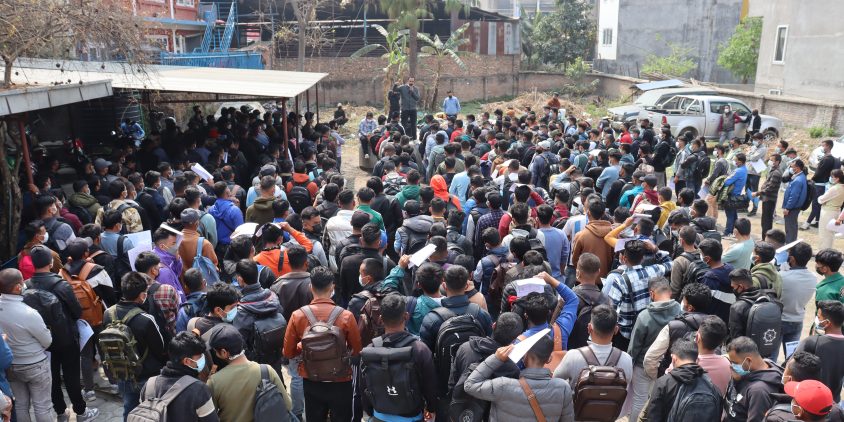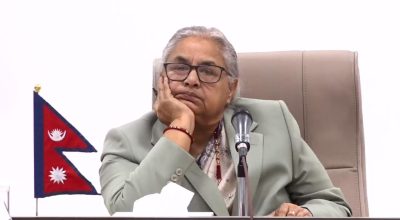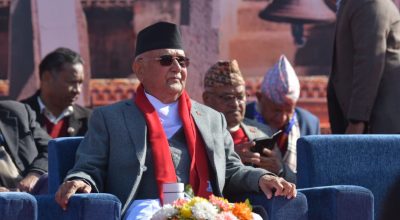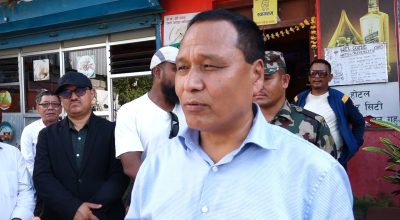
Kathmandu, Sept 9: South Korea, which has been on a journey of continuous economic prosperity for the past few decades, has started to be recognized as an attractive job destination among Nepalese youth. The number of Nepali youth participating in the mandatory language test for employment in South Korea confirms this fact.
Since 2008, South Korea has been taking Nepali workers for employment through Employment Permit System (EPS). More than 900,000 people have filled the application form to participate in the language test conducted since the start of EPS. According to the statistics of the EPS Korea Section under the Foreign Employment Department, 919,631 young people have applied for the Korean language exam so far.
For the year 2024 alone, more than 199,113 people had applied for the language test. So far, 548,771 people have participated in the language test.
More than 100,000 got employment in Korea
The number of people going to South Korea for employment under EPS have been continuously increasing. Maiyan Kandel, head of EPS Section, says that 155,544 people, including 98,310 men and 7,243 women, have been employed in South Korea.
During the 17 years since Nepalese youth started going to South Korea for employment through EPS, the highest number of 19,689 people left for South Korea in 2023. In 2023, Nepal succeeded in becoming the country that sends the most workers. Within the last seven months of 2024, 4,285 Nepali workers have gone to South Korea.
South Korea has been providing opportunity for workers of Nepal, Indonesia, Vietnam, Thailand, Philippines, Sri Lanka, Mongolia, Uzbekistan, Pakistan, Cambodia, China, Bangladesh, Kyrgyzstan, Myanmar, Timor-Leste, Laos, and Tajikistan under the EPS. In 2015, Nepal also received the ‘Best Practice Outstanding Award’.
Nepal and South Korea signed an agreement in 2007 to send Nepalese workers to South Korea through the Employment Permit System (EPS). Since 2008, Nepali workers have started the Korean journey. Kandel, Director of the Sranch, says that around 50,000 Nepali workers are still in South Korea. The employment agreement between the two countries has been renewed every two years. The contract was last renewed in 2022.
Compared to other employment destinations, the number of Nepali workers living illegally in South Korea is low. Due to the effective implementation of labor laws in South Korea, Nepal has to pay less concern than other destinations. South Korea has been taking Nepali workers in three categories: those who have passed the language test, returned from employment and passed the computer skills test (CBT), and those who have worked for a full period without changing companies and return to the same company (Committed).
Each worker going to South Korea for employment through EPS must pay about 1,350 US dollars for examination, health examination, registration of application form, entry permit, insurance, air ticket, and initial training. Workers employed in South Korea can work for 4 years and 10 months. After completing that period, they must return to their country.
Director Kandel says that although South Korea used to take Nepali workers in the agriculture and animal husbandry and production sectors in the early stages, it has been expanding the employment sector in recent days. Currently, South Korea has started taking Nepali workers in the shipping sector and has informed that it will expand the forestry and service sector as well.
Challenges of EPS system
After completing the language test and submitting the employment application, it is a challenge for the young people who are on the roster to arrange employment in South Korea. According to the EPS Korea Section, from 2022 until now, 42,059 people have been on the roster, but only 18,020 people have succeeded in being selected by employers.
If anyone do not go to South Korea within two years after passing the language test, they have to appear and pass the language test again. According to the statistics of the EPS Korea Section, the remaining 24,039 people have not yet been selected by the employer. According to the Section, 691 people were placed on the roster by changing the roster in the service sector, but only seven were chosen by the employer.
The director of the Section is of the opinion that efforts should be made to send more workers to fields such as firewood production, agriculture and animal husbandry, watercraft, and forestry and service sectors. She suggested that the annual schedule of the language test should be approved and made predictable, and diplomatic initiatives should be taken to match the number of people who pass the test and are allowed to go to South Korea. #EPS #Korea #nepal
Ashok Ghimire/RSS












